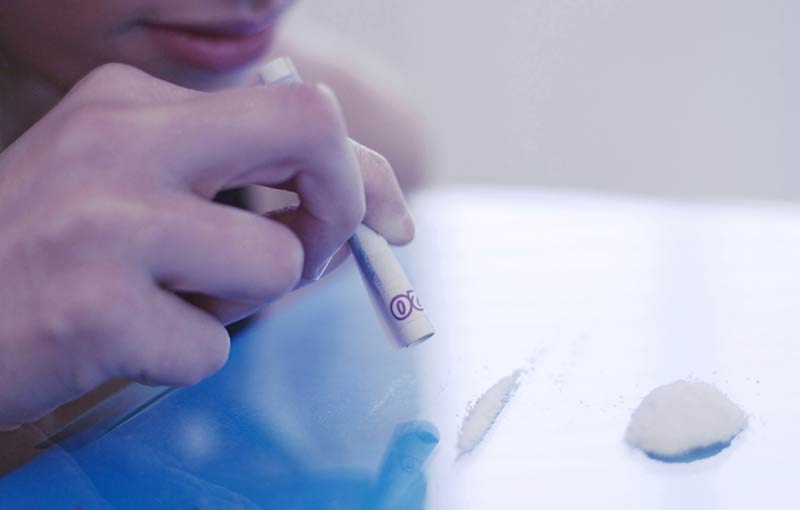Efforts have been on by scientists throughout last century to study drug addiction despite the misconceptions and myths that existed about it. Earlier drug addiction was considered to be a moral failing and those affected by it were considered to be moral lawbreakers. Punitive action was taken against them.

What is drug addiction?
Addiction is a chronic and relapsing disease of the brain, which is characterized by compulsive use of and seeking of drugs. Since the drugs change the brain, it is considered to be a brain disease. These drugs change the structure as well as its functioning. Such brain changes can be long lasting and cause harmful behavior patterns in the user.
People of all ages can succumb to the consequences of drug abuse. Pregnant women who use drugs can deliver underweight babies and the babies can suffer from deformities. Adults who use it have problems in making decisions and are also socially maladjusted. Teenagers or children do not perform well at school. Parents who use these drugs often neglect their homes, abuse their children and fail to keep “peace” at home.
Why do people take drugs?
- To feel good: The users like to go on “high” and experience “euphoria”. These drugs produce very intense feelings of pleasure. The “euphoria” felt by the use of heroin is followed by feelings of satisfaction as well as relaxation.
- To perform better: To improve their cognitive and athletic performance some take to drugs.
- To feel better: Some to overcome social anxiety, depression and stress take to drugs. They want to feel better and happy. A sense of euphoria prevails.
- Peer influence: Many like to do what others are doing. They would also like to “try out” the drugs and experience what others are enjoying.
They would like to know what it means on going on a “high”.
Negative effects of drug addiction
- Families get affected. Other family members find it difficult to cope with a person using drugs regularly.
- Harmful behavior of the drug user can be a social problem.
- The abuser always wants to feel normal and tends to take more of the drug.
- Strain on the budget.
- Over a period of time activities that are pleasurable become less pleasurable.
- The need to take more of it increases even at early stages.
Is drug abuse a choice or a compulsion?
Initially, the use of drugs is voluntary, but in course of time it becomes a compulsion affecting the functioning of the brain in many ways. Physical changes in the brain area take place affecting the ability to make decisions, or make judgments. Even behavior patterns change, sometime proving to be harmful to others.
How has research helped to understand drug addiction?
Now, with development in science, researchers have felt that it was more of a health and social problem, and drug abusers required care and understanding. The problem needs to be dealt with as a health problem. Discoveries about the brain that happen to be ground breaking have enabled scientists to understand about brain functioning and its relationship to drug addiction. Such understanding has helped health practitioners to deal with the problem effectively.
Scientific research has revealed to us that addiction happens to be a disease that affects both the behavior and brain. Also scientists have studied the environmental as well as biological factors, and are also searching for genetic variations that contribute towards the progression as well as development of the disease. This helps scientists to discover ways and means to prevent and treat drug addiction so that the effect on the family and user is minimized.
Progress made in understanding drug abuse
Despite efforts being made by scientists to understand drug addiction, they have been unable to ascertain in right perspective why drug abuse takes place and how drugs change influence the brain to promote compulsive use of drugs.
Why some get addicted to drugs?
- Vulnerability.
- Biological makeup of the individual.
- Genetic factors.
- Suffering from mental disorders.
Environmental factors which influence drug abuse
- Home as well as family – Home atmosphere not being conducive or family relationships not being smooth and harmonious.
- Early Use – Those who start using the drug early are likely to get addicted to the drug.
- Peer and school – Many adolescents try out drugs. Children like to do what others are doing.
- Method of the drug being administered – Smoking a drug or injecting it in vein increases the risk of becoming addicted.
Preventive measures to reduce drug addiction
- Deal with the problem of early users.
- Tackle drug abusers.
- Special programs to deal with drug abuse.
- Protective measure like helping those who vulnerable to drug abuse such as school going children and teenagers.
- De-addiction measures.
Drug addiction is a major problem to deal with for many health practitioners as well as social workers. The overall health of the individual who abuses drugs is affected. Efforts need to be made to control drug addiction.
